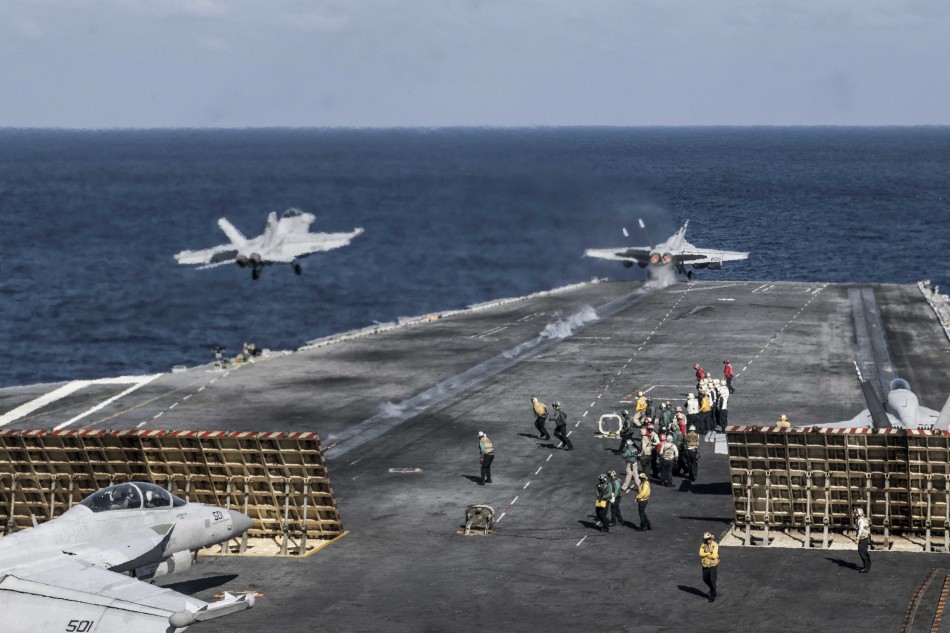
The US Wants to Use the South China Sea to Stir the Hornet’s Nest
Compared to the current state of upheaval in Europe, this situation should be considered trivial. Serious terror attacks have disrupted Europe: France has closed its borders and a few countries are once again reconsidering their approach to admitting Syrian refugees. Twenty-seven U.S. states, on the opposite side of the Atlantic, have refused to admit refugees from the Middle East. However, with the continuing unrest and chaos of war in the Middle East, the rush of refugees is never-ending, and their resentment will only grow deeper and deeper after having met these cruel migration roadblocks.
A great number of people believe the U.S. is responsible for the chaos in Europe. Sept. 11 was an outpouring of Islamic extremism toward America. Later, the U.S. successfully cultivated Middle Eastern terrorism outside its borders and pulled Europe into the Middle Eastern “hornet's nest.” Currently, the hornets aren't stinging the U.S; instead, they’re fiercely stinging Europe: first Madrid, then London, and most recently Paris.
On this side of the Pacific Ocean, the U.S. is closely watching the South China Sea. The U.S. is far from the South China Sea, the Middle East and Europe, yet the U.S. has taken up the issue of “re-balancing the Asia-Pacific” region in an attempt to re-stir the hornet's nest.
The West always follows this sort of logic: ‘We really like to stir up hornets’ nests, but the hornets set free from each of those nests didn't emerge because of us!’
So, in the end, it depends on whether the South China Sea is or is not a hornet's nest. If it is, the whole region will find it difficult to escape calamity. Some people question whether the confusion in the South China Sea is doing the U.S. more harm than good, and question whether the U.S. doesn't actually intend to turn the region into chaos. This analysis isn't without justification, but the problem is that disorder in the South China Sea causes greater problems for China and its distant surroundings than it does for the U.S.; Washington will require enormous courage to poke the South China Sea hornet's nest.
The U.S. is a nation in the middle of two oceans. It has very strong territorial land defenses, and in the past decade, its army has been stationed all over the world. A few people have died, but the hornets’ nests the U.S. has poked all over the world, when strung together, form an invisible wall of potential threats to the United States. Because building such a wall is costly, even if it may be useful to the U.S., they should first consider the benefits and drawbacks of such actions.
The South China Sea issues aren't really shocking. With regard to the region’s development, a real community has been formed, and as far as territorial disputes are concerned, they are no less than strategic buffers. No two countries claiming sovereignty within the South China Sea have any preferences or demands. As for territorial disputes in the South China Sea, the words “never-ending” and “incessant” are appropriate. Following China's construction of its island reefs, the South China Sea has gradually prevented a problem from being viewed as definitively breaking any unwritten rules. The U.S. has put on a noisy performance; its fleet has come here to conduct a patrol and finds itself inflaming the situation and interfering with the unwritten rules of the South China Sea.
The biggest strategic powers in the South China Sea region are starting to lean toward China. I am afraid this provides no absolute guarantee that the South China Sea won't become a hornet's nest to be stirred up by the United States. The U.S. is a great distance from the South China Sea; some of its hasty, rude and impetuous actions are hard to miss in China, especially when it acts like a naughty child by going around and breaking things. China needs to control the U.S. to be in line with the interests of the whole region.

